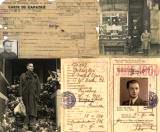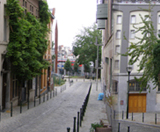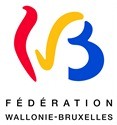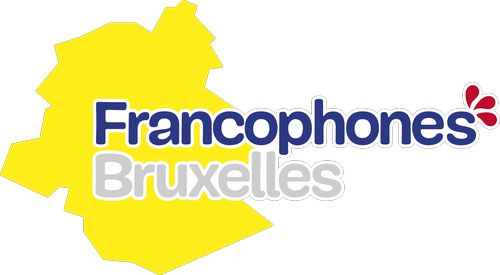Summary, abstract and full texts n° 105
Dossier: Charlotte Delbo
Coordinated by Philippe Mesnard with the collaboration of Elisabetta Ruffini
Philippe Mesnard: Pourquoi Charlotte Delbo ? (pdf)
- The reconstruction of Charlotte Delbo’s personal life casts light on the challenges featured in her literary work. Her involvement in the world of literature may be viewed as the choice of a life of wrestling with history, and a determination to let the voices of history be heard. A glimpse into Delbo’s biography also gives an opportunity to review her approach to poetry, which explains her way of committing herself as a witness.
I. Literary Prospects
Nicole Thatcher: Le témoignage d’une femme de lettres (pdf)
-
It is as a woman writer that Charlotte Delbo testifies. She does not recount her experience, but "speaks" it, thus undermining the traditional form of testimony on the camps. Influenced by the knowledge of the theatre which she acquired from Louis Jouvet, she makes us "see" the inconceivable through the physical movements of the text and its setting in time and space. By calling on the resources of a poetic literary style, she makes us "feel" the unheard-of sufferings of the prisoners and the inhumanity of the camps.
Luba Jurgenson: L’identité narrative chez Charlotte Delbo. Un modèle choral (pdf)
- The complex memorial construction built up through the different sequences of Auschwitz et après and brought to light through a parallel reading of the trilogy and Le convoi du 24 janvier reveals a structure of dialogue achieved thanks to the tension between the female narrator’s voice and those of the witnesses she summons. This polyphony, which reflects a community where the dead and the living remain united, brings out a narrative dimension of identity which can be described as choral, where the individual person survives in relation to the collective person.
Daniela Amsallem: La poésie dans l’œuvre de Charlotte Delbo (pdf)
- Poetry occupies an important place in the work of Charlotte Delbo. She does not draw a clear line between prose and verse, and this gives her books on the deportation, particularly the trilogy Auschwitz et après, their special quality compared with the testimony of other survivors of the camps. Her theatrical training with Louis Jouvet appears in her page layout, in words addressed to the reader, in dialogues for several voices. Her desire to make the reality of the camps palpable by using images, stylistic devices and carefully chosen words produces extremely powerful writing filled with the themes of love and death, solidarity and decay, the disappointment of the return, and hope despite everything.
II. The Commitment
Cécile Godard: L’actualité politique comme source d’inspiration littéraire
- Charlotte Delbo’s work does not consist solely of her texts on Auschwitz. As time went by, political events drove her to write, quite often to express her indignation. Most of these writings are plays (a form she particularly favored) because she could "set the scene" and "make things visible". Thus, in chronological order, in La théorie et la pratique she invents a dialogue between Herbert Marcuse and the neo-Marxist sociologist and philosopher Henry Lefebvre concerning the events of May 1968 in France. In August 1968 the entry of Soviet tanks into Prague inspired La Capitulation. Then in 1970 she produced La Sentence, which retraces the trials of Basque separatists at Burgos. Le Coup d’État (1971) recounts the failed attempt to overturn Hassan II of Morocco. Finally, events in Latin America resulted in a play, La Victoire était-elle possible ?, which takes place in Santiago, Chile during Pinochet’s coup d’état, while the poem Les Folles de mai takes us to Argentina.
Michael Rothberg: Entre Auschwitz et Algérie : Une mémoire multidirectionnelle
- In 1961, the year the Eichmann trial took place in Jerusalem, Charlotte Delbo published her first book. It was not, however, the first volume of her exemplary camp trilogy Auschwitz et après. Rather, it was Les Belles lettres, a collection of open letters, surrounded by Delbo’s editorial comments, on the Algerian War of Independence. This essay explores the significance of this early and almost completely ignored book for an understanding of Delbo’s œuvre and for the emergence of camp testimony and Holocaust memory. It argues that a context of torture, censorship, and the use of detention camps during the course of the Algerian War prompted Delbo to reflect on the form of testimony and the shape of the public sphere. Reading Delbo through the Algerian War and in dialogue with Auschwitz – instead of solely in relation to the accounts of the camps – transforms her place in the canon of contemporary literature. Even more significantly, it prompts a rethinking of theories of testimony and can lead to the conceptualization of a new theory of multidirectional memory that accounts for the interaction of different histories within the public sphere.
Photo Section
Catherine Coquio: La tendresse d'Antigone. Charlotte Delbo, un témoignage féminin (pdf)
- Through a parallel reading of Auschwitz et après, Spectres, mes compagnons and Kalavrita, des mille Antigone, I touch on two related points: tragedy as a model both adopted and overtaken by Delbo’s poetic testimony; and her testing of the figures of Electra and, above all, of Antigone, to reflect on mourning after Auschwitz. The plurality of the "thousand Antigones" resulting from nazi law makes use of the image of political grief inherited from tragedy, but shatters that image. By binding together the intimate and the collective, "I" and "We", the masculine and the feminine, that writing haunted by sexual bodies expresses a feminine subjectivity and physicality, and seeks through its rhythm and its song to produce a "greatness" different from tragic greatness, the greatness evoked in the introduction to Une Connaissance inutile: "We feel great tenderness for men".
III. Theatre
Christiane Page: Deuil et désir (pdf)
- On her return from deportation and because, as she said, "nothing must escape from language", Charlotte Delbo wrote to keep memory alive. She began by writing poetry, and then plays. Her works for the stage were born from the rewriting of her poetical work in a quest close to endless recollection for the same traumatic scene: her farewell to the man she loved. This sudden emergence of a reality which irreversibly altered the course of her life became a central theme of her work, as witnessed not only by her autobiographical plays, but also by La sentence, written at the time of the Burgos trial (1970), and Kalavrita des mille Antigone (1977). The theatrical techniques she uses make her work not only a testimony to a moment in history, where the discomfort in a civilization which had become synonymous with decline but also a quest situated between ethics and aesthetics.
- How does Charlotte Delbo confront pathos in Qui rapportera ces paroles ? [Who will carry the word?] (1966), whose action takes place in a nazi extermination camp? The presence of pathos is essential for the theatrical representation of the camp, as a stated and manifest measure of human experience and an indispensable effect of the theatrical representation on the audience. But owing to its nature, the extermination camp also demands a dramatic representation based on an ethical pathos. Pathos is therefore brought into play by means of a staging and an acting style devoid of any affected or tear-jerking emotions. The emotions acquire their pragmatic efficacy through the semiotic and linguistic limits fixed by Charlotte Delbo. In this way the play justifies pathos and rehabilitates it by breaking with the disparaging comments or pejorative connotations of which pathos is often the subject.
- From the Santé prison to Auschwitz, from Raisko to Ravensbrück, from Spectres mes compagnons [Ghosts My Companions] to Mesure de nos jours [The Measure of Our Days], and via Molière and Giraudoux, Charlotte Delbo kept company with many ghosts. Sometimes they appear as fleeting hallucinations, sometimes – thanks to words – as a more formal presence. These literary ghosts lived with Charlotte Delbo from her arrest to her return; their influence extended above all to the form of her writing itself.
Annick Asso: Charlotte Delbo : Un théâtre à Auschwitz (pdf)
- Charlotte Delbo admitted several times that she took refuge in the art of the theatre in order to maintain the strength to survive. In her largely autobiographical writings, the central character of Françoise, who seems to be a double of the author, instigates the moments of theatre to which the prisoners cling in their most extreme deprivation. The works examined are Auschwitz et après, where Charlotte Delbo recounts how she and her companions staged Molière’s Malade Imaginaire at Auschwitz; Qui rapportera ces paroles?, where Françoise performs episodes from plays for her companions; and the unpublished play Les Hommes, which portrays an episode from Charlotte Delbo’s life in prison before her internment at Auschwitz, and bears witness to the author’s effort to survive intellectually and emotionally from the moment of her arrest by staging a play by Musset, Un Caprice.
Other subjects
Judith Lindenberg: Giorgio Caproni et Paul Celan : deux figures poétiques du témoin après Auschwitz (pdf) [Giorgio Caproni and Paul Celan: two poetic figures of the witness after Auschwitz]
- The Italian poet Giorgio Caproni (1912-1990) wrote a Journal describing his travels in Poland in 1948, but it does not describe his visit to Auschwitz. He wrote about the visit in an article published in 1961 – when the "age of the witness" began with the Eichmann trial – where elements announcing the future features of his poetry already appear, notably the figure of the absent God and the use of negativity, linked to certain stylistic features which approach his poetry to that of Paul Celan (1920-1970), whose writings are inextricably linked to the Jewish genocide. Both poets developed a poetic style where the Shoah is not the subject of the poetry; rather, the event is used as the starting point from which to re-think the conditions for the emergence of language
Marta Marín-Dòmine: L'exposition était presque parfaite (pdf)
Some of our projects
Contact
Auschwitz Foundation – Remembrance of Auschwitz
Rue aux Laines 17 box 50 – B-1000 Brussels +32 (0)2 512 79 98
+32 (0)2 512 79 98 info@auschwitz.be
info@auschwitz.be
BCE/KBO Auschwitz Foundation: 0876787354
BCE/KBO Remembrance of Auschwitz: 0420667323
Office open from Monday to Friday 9:30am to 4:30pm.
Visit only by appointment.
![]()
![]()
![]()
![]()
![]()
Become a member
To become a member of Remembrance of Auschwitz ASBL, please contact us and transfer the sum of €50.00 to our account IBAN: BE55 3100 7805 1744 – BIC: BBRUBEBB with the communication: ‘Membership fee 2025’. The membership includes two issues of 2025 of our scientific journal.
DONATIONS
Donations of €40.00 or more (in one or more instalments) qualify for tax exemption for Belgian taxpayers.
In communication, please specify that it is a ‘Donation’ and mention your National Number which is required since 2024 to benefit from the tax exemption.
Subscribe
Error : Please select some lists in your AcyMailing module configuration for the field "Automatically subscribe to" and make sure the selected lists are enabled










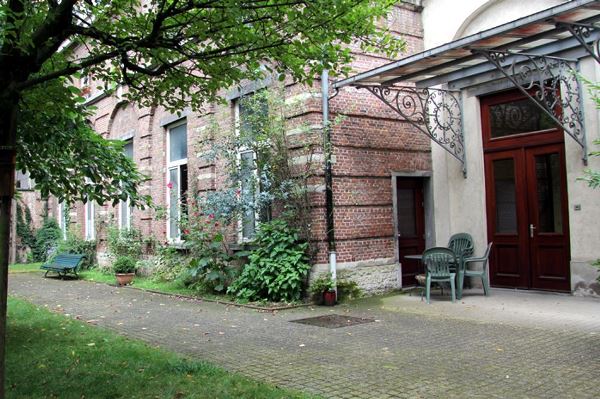 The Auschwitz Foundation was founded in 1980 by Paul Halter, an Auschwitz survivor. Replacing the Amicale Belge des Ex-Prisonniers politiques d’Auschwitz-Birkenau Camps et Prisons de Silésie, the primary objective of the Auschwitz Foundation is to study the history and memory of the victims of the Holocaust and the Nazi terror in a sustainable and systematic way. The transmission of memory and the preservation of archives concerning these events complete this goal.
The Auschwitz Foundation was founded in 1980 by Paul Halter, an Auschwitz survivor. Replacing the Amicale Belge des Ex-Prisonniers politiques d’Auschwitz-Birkenau Camps et Prisons de Silésie, the primary objective of the Auschwitz Foundation is to study the history and memory of the victims of the Holocaust and the Nazi terror in a sustainable and systematic way. The transmission of memory and the preservation of archives concerning these events complete this goal.
